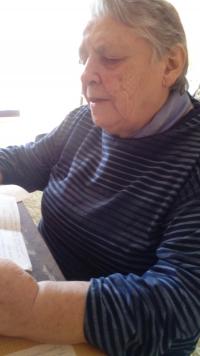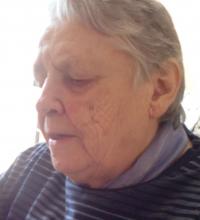My daughter almost died on the way home

Download image
Marie Rechtigová was born on 24 January 1927 in Warsaw. She had one sister, Stefanie, who died at a young age. Her childhood was impacted by the war and the Nazi occupation of Poland. The house in Warsaw where her family lived was destroyed at the beginning of the war, and the family moved to nearby Pruszków. The witness attended school, but in 1942 it was raided by the Nazis and all the children were taken by force to Stutthof concentration camp in northern Poland, near Gdańsk. Marie Rechtigová was later sent to forced labour in Germany, and she worked at the IG Farben factory in Berlin. She tried to escape with a friend once, but the police discovered them on a train. After a brief stay in prison she was sent back to work at the factory. She met her future husband, Jaroslav Rechtig, in Berlin, where he was also assigned to forced labour. They begot a child, and in April 1945 she secretly gave birth to a daughter, Jarka. After the war she and her husband and baby daughter set off on foot to Czechoslovakia, to her husband’s native Moravian Slovakia. They journey from Berlin was very difficult, their daughter fell ill on the way and almost died. They arrived in Staré Město near Uherské Hradiště after more than a fortnight of travelling on foot and in cattle wagons. The family settled down in Staré Město and later moved to Uherské Hradiště. Marie Rechtigová and her husband raised seven children. She never moved back to her native Warsaw. After her husband’s death she continues to live in Uherské Hradiště.

